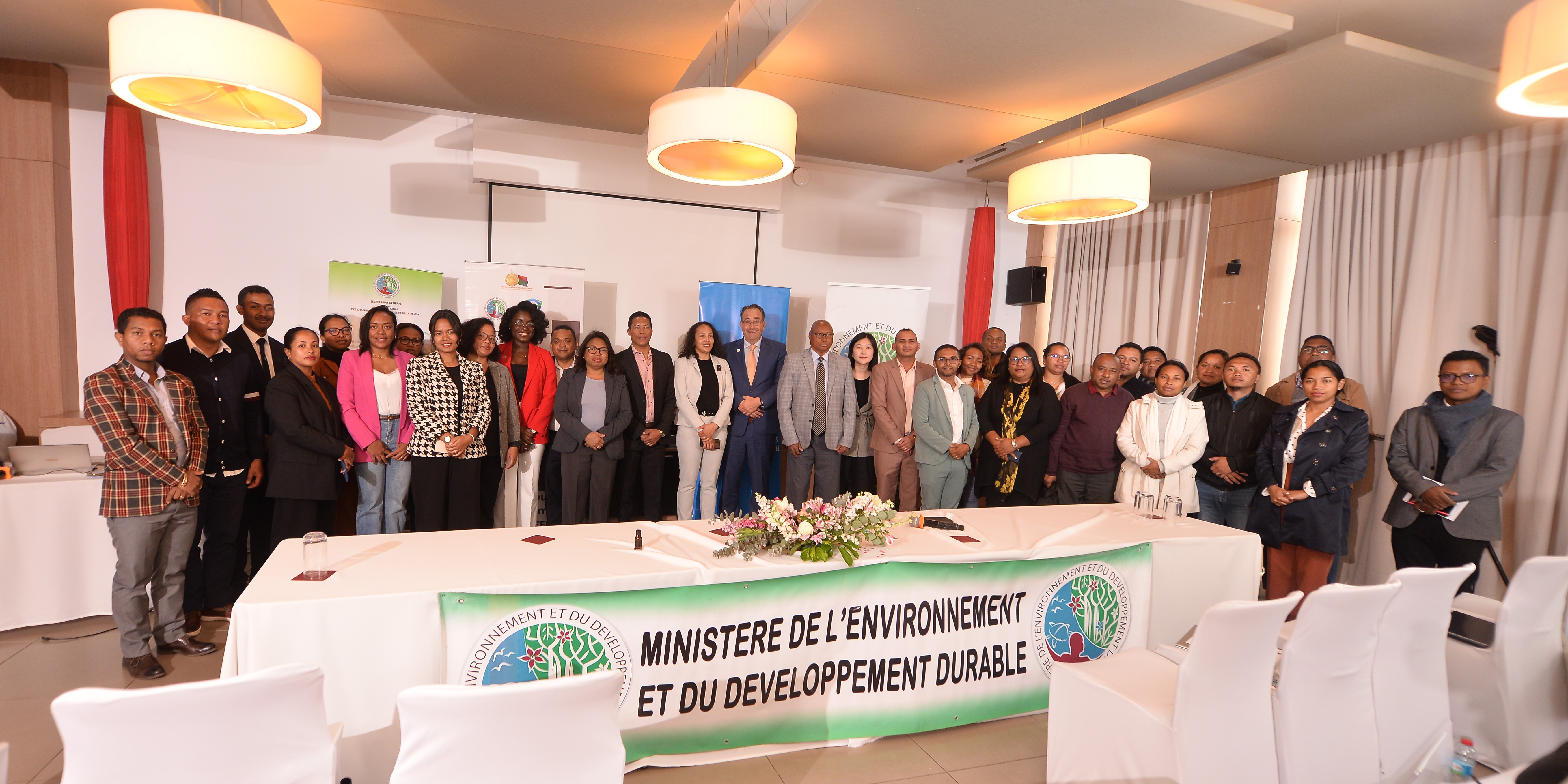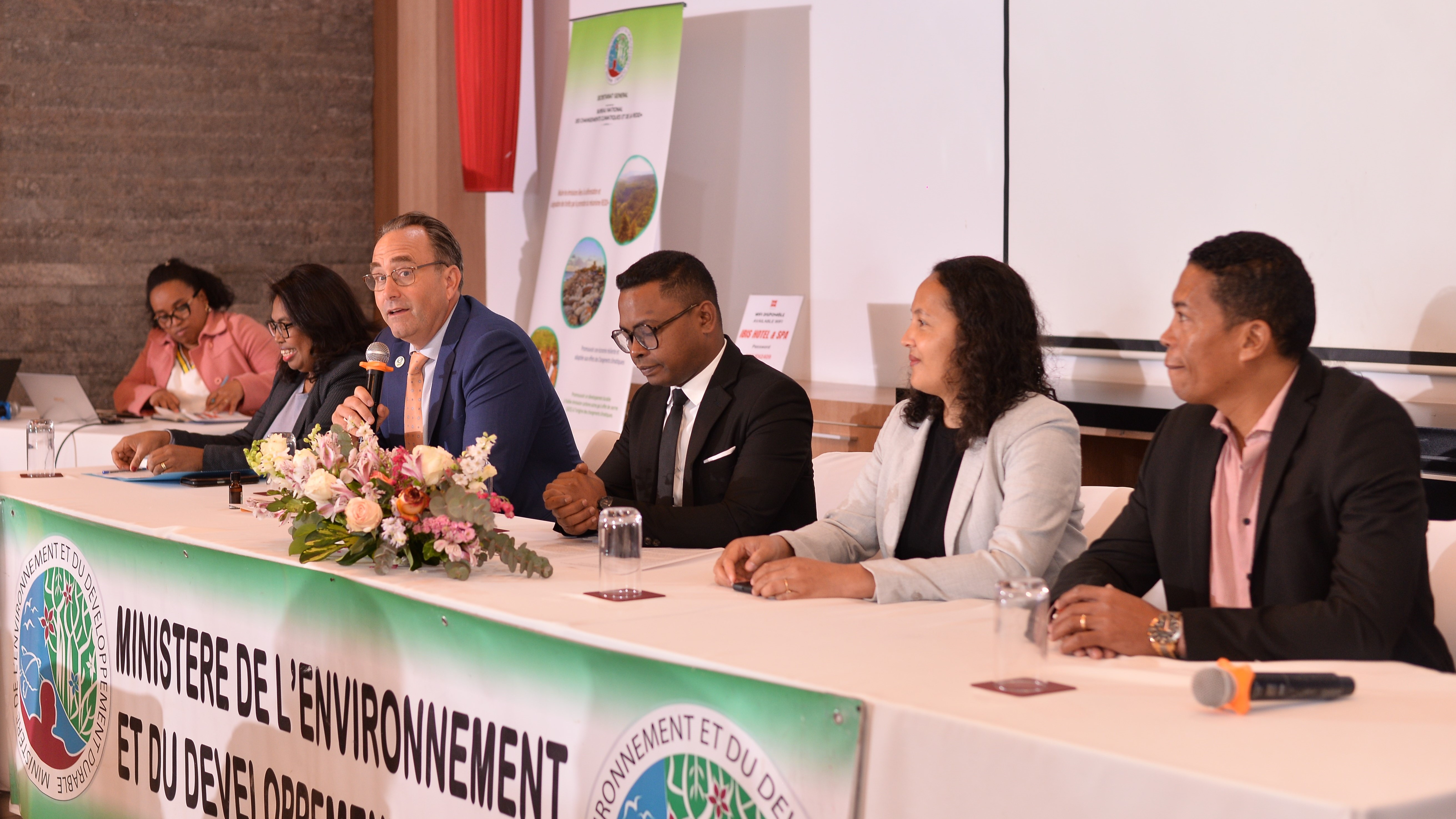

Accelerating innovation to strengthen climate resilience of the essential oils sector in Madagascar
05 September 2024

Antananarivo, September 4, 2024 – Madagascar has launched an innovative project to strengthen its essential oils sector against the rapidly increasing impacts of climate change. This initiative emphasizes entrepreneurship and technology innovation, aiming to equip micro-, small and medium-sized enterprises (MSMEs) with the tools and strategies to adapt to climate resilience challenges.
“Madagascar is one of the leading producers of essential oils, with over 35 species of aromatic plants. This new project represents an innovative initiative in climate adaptation for our country. It aligns perfectly with our national priorities and adaptation needs. We are eager to see the positive impacts that this project will have on Madagascar and its people, as it focuses on empowering local businesses, youth, and women, thereby providing valuable opportunities to the most vulnerable communities in our country," said Mr. Max Andonirina Fontaine, Minister of Environment and Sustainable Development of Madagascar.
The “Building adaptation and resilience to climate change in the essential oils sector in Madagascar (ARCHE)” project will focus on MSMEs to develop and deploy adaptation solutions for the essential oils value chain. It will advance and implement innovative adaptation technologies and services, facilitate knowledge sharing and learning, and enhance monitoring and evaluation efforts.
Supported by the Ministry of Environment and Sustainable Development of Madagascar, the ARCHE project is financed by the Global Environment Facility (GEF) and implemented by the United Nations Industrial Development Organization (UNIDO) in partnership with the National Office for Climate Change and Reducing Emissions from Deforestation and Forest Degradation (BNCC-REDD+).
“Madagascar is increasingly experiencing the severity of the climate crisis and the loss of nature. Its endemic and unique biodiversity provides a wealth of ecosystem services for climate adaptation, resilience and livelihoods across virtually all sectors of Madagascar’s economy. Particularly noteworthy is the enormous opportunity presented by ecotourism, which will soon become one of Madagascar’s key economic drivers,” GEF CEO and Chairperson Carlos Manuel Rodriguez said. “Building on our fruitful meeting with the minister during a recent visit to Madagascar, GEF is proud to partner with the Ministry of Environment and Sustainable Development and UNIDO to strengthen the climate resilience of the essential oils sector with financing from the Least Developed Countries Fund. This project will support local businesses and implement innovative production technologies for the climate resilience of the essential oils local value chain, while also driving economic growth and resilience in the country.”
“UNIDO is committed to support sustainable and climate-resilient industrial development in Madagascar. Agribusiness, in particular the production of essential oils, is key to economic growth and provides livelihoods for many smallholder farmers and businesses in the country. With the ARCHE project we are developing Madagascar’s natural resources in a climate-resilient and sustainable way, supporting over 34,000 small-scale producers and growers, aiming for half of them to be women”, said Gerd Müller, Director General of the United Nations Industrial Development Organization.
With growing consumer demand for exotic and natural essential oils, Madagascar’s unique plant species provide a competitive advantage. If the 21% annual growth rate from 2010 to 2020 continues, exports could potentially surpass USD 450 million by 2030. However, to sustain this growth amid the increasing impacts of climate change, the essential oils value chains must become more flexible, innovative, efficient, and resilient.
The project will assess the impact of climate change and weather patterns on plant yield, workflows, and production processes in the essential oils sector. It will implement innovative solutions from local MSMEs to make essential oils businesses not only climate-resilient but also more competitive in the market. For instance, it will introduce technologies such as optimized solar-powered irrigation systems and water recycling. The project also aims to train more than 4,500 growers and distillers - half of whom will be women and one-third youth. Additionally, it will promote entrepreneurship, income diversification, and off-farm employment opportunities, particularly targeting women and youth in vulnerable communities.
The launch event in Antananarivo was attended by a range of stakeholders, including representatives from Madagascar's ministerial departments and essential oils industry, national experts, non-governmental and civil organizations, GEF and UNIDO. The event included a half-day workshop with presentations on the project’s objectives, activities, and expected outcomes. It also covered discussions on the role of the private sector and innovation in climate-resilient livelihoods, synergies with current and future initiatives, and the long-term strategy for the ARCHE project beyond its completion.
About the Global Environment Facility
The Global Environment Facility (GEF) is a multilateral family of funds dedicated to confronting biodiversity loss, climate change, and pollution, and supporting land and ocean health. Its financing enables developing countries to address complex challenges and work towards international environmental goals. The partnership includes 186 member governments as well as civil society, Indigenous Peoples, women, and youth, with a focus on integration and inclusivity. Over the past three decades, the GEF has provided more than $25 billion in financing and mobilized $145 billion for country-driven priority projects. The family of funds includes the Global Environment Facility Trust Fund, Global Biodiversity Framework Fund (GBFF), Least Developed Countries Fund (LDCF), Special Climate Change Fund (SCCF), Nagoya Protocol Implementation Fund (NPIF), and Capacity-building Initiative for Transparency Trust Fund (CBIT).

